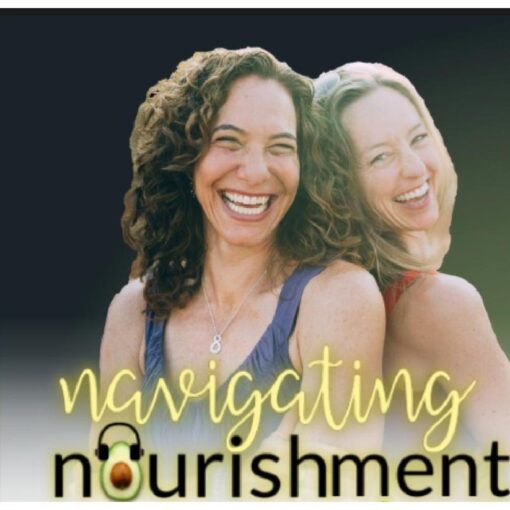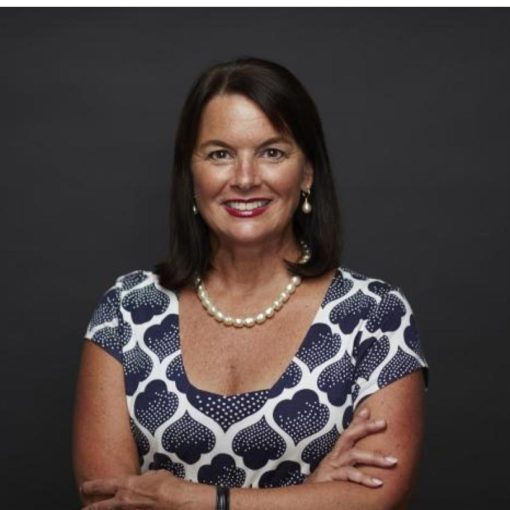Podcast: Play in new window | Download (Duration: 15:12 — 13.3MB)
Subscribe and don't miss an episode! Apple Podcasts | Spotify | Android | iHeartRadio | Deezer | RSS
There are unexpected health issues post-menopause. In this latest episode of Navigating Nourishment, we speak candidly about our personal experiences with menopause. We acknowledge the lack of education our doctors are given in medical school and the lack of research on women’s health that has lead to the chaos women feel during this prominent time of life. As you know, hormone levels rapidly fluctuate, but you might not know that makes bloodwork almost useless. We emphasize the unique challenges of each individual’s experience and stress the importance of communication and understanding among women going through menopause. As always, we advocate for dialing in to our Five Foundations of Health.
TRANSCRIPT
(edited for readability)
Debbie 00:15
It’s about our take on what we know about the health and wellness industry and what, how to sort through it all. Because it’s not only is it confusing, but it’s misleading. And we want to help people out trying to understand what’s going on with their health.
Wendy 00:32
We need to be more of an advocate for ourselves, we often give away the decision power to other people. And so we’re here to coach people along and help them really take care of themselves. We’re the person who knows our body best, right? Our doctors and our coaches and our chiropractors and acupuncturists don’t know us better than we know ourselves. But they can help. As long as we’re really good communicators.
Debbie 01:01
That’s right. And that’s how we help people out exactly.
Wendy 01:03
Specifically for this podcast, we want to make sure everyone knows we’re not doctors, we don’t diagnose, treat or cure, we are here to have a conversation with people about their health.
Debbie 01:17
And a lot of it is our own interest in it because of what’s going on with our own health and our clients health. So we come to you with real anecdotal stuff. But again, we’re not. We’re not doctors. So whatever information we have, we want you to be curious about and to check it out on your own as well. So you came in this morning, Wendy, not feeling so great. And this isn’t the first time in the last few weeks. It’s been a couple of times, at least
Wendy 01:47
I had a really bad migraine and now I’ve got a migraine hangover. I got off the phone with a client and bam, it hit me out of the blue. No warning. And it was a tough sleep for me last night. And it’s still kind of lingering. I’m asking myself, Why is this happening again?
Debbie 02:13
I’ve been saying that all the time that I have a whole list of odd little things that have been happening, having to do with my hands hurting, having trigger finger, having higher cholesterol and blood pressure numbers, weird things. Considering all the practices that I do in my life – I’m fit, I eat really nourishing foods. I have low stress. I’m doing all the things that I can do to support my health. And you wouldn’t know it by what’s going on in my body right now.
Wendy 02:48
Similar here – my heart rate is sky high when I run, which is really disconcerting – but only sometimes. And I’ve got these cramps that are just like, out of the blue. I’ll just be sitting there or I’ll be walking and I’ll get this random cramp. And it’s just, it’s unusual.
Debbie 03:09
It is very disconcerting. And it’s frustrating. You know what, nobody told us!!! Nobody told us that this is so normal for being postmenopausal.
Wendy 03:24
Post menopause is a big subject and we’ve been diving into different research, reading new books and trying to get to know ourselves a little bit better. Trying to understand where the brain fog and frustration is coming from and just not completely feeling like ourselves.
Debbie 03:48
Exactly. There is a lack of menopause training in medical school, for sure. And there’s a lack of research done on menopause. I mean, the numbers are insane. On a recent podcast, the hosts were talking about the number of research studies done on other things like diabetes or cholesterol. All those other studies compared to menopause. It’s like millions of studies versus 1000 studies.
Menopause confusion and lack of research.
Wendy 04:16
That’s so disconcerting! To be fair, perimenopause and post menopause is very confusing. One moment, our hormones are at x level and then the same day, maybe in the afternoon, our hormone levels can be completely different. And that’s one of the things we’ve learned is that getting blood work for our hormones is kind of a waste of time.
Debbie 04:47
Because it’s a moment in time. I remember getting my bloodwork done and the numbers were always crazy and weird. It’s probably not researched besides the whole woman issue, which is another whole podcast – but it’s also because every single individual is so different. And so are the symptoms. Everything is different. So it’s really hard for science to pin things down because of that. So we’ll give them a little bit of leeway for that. But at the same time, we really need more research.
Wendy 05:27
We need more research, for sure. And I want to start off too by saying this:
Women who are really taking nourishing care of themselves with the Five Foundations of Health: Nutrition, Sleep, Movement, Mindset, and Connection – are going to have lesser symptoms overall.
People who are not in a wellness state, will most likely have more. So even though Debbie and I are taking super good care of ourselves (and of course, we could always do better!), we’re still having all these really strange side effects of being postmenopausal. And so we just we want to normalize the chaos that’s going on.
Debbie 06:21
I think that’s the right word. That’s what it definitely feels like, it does feel like chaos. And I have to apologize to anybody or any of my past clients who were ahead of me in this journey. I didn’t know! I may have given advice that probably wasn’t the best either, thinking, maybe they’re just not doing the work. Maybe they’re not telling me the whole story. Or maybe they’re holding back some information. But you know what, and maybe that’s true on some level, but I think for the most part, I just didn’t understand that chaos was happening.
Wendy 06:57
I am glad you brought that up. Because I do think of previous clients who said, How can this belly fat be here!? I had a physical education teacher who was walking and she was running – very active. And she’d look at me like, What happened? At the time, I attribute it to the stress in her life. And yes, it was absolutely the stress in her life. But it was also that she was postmenopausal. And we didn’t have conversations about it.
Debbie 07:38
And most of that, I would say, is because of lack of information. I think in the last two years, we’ve been hearing about it probably because of our age, too, but I think people are really talking about it more than they’ve ever talked about it. My mother didn’t know to tell me these things. When she went through it, she didn’t have any information. We have to talk about it with each other and with our younger women – our daughters or granddaughters, everybody. Just open up conversation.
Wendy 08:12
The bottom line is to support each other and communicate. Whether you’re a woman listening to this, or someone who loves a woman, we need to have some patience with ourselves and each other. I know for me, I get irritated with myself when I’m in a brain fog, for example. And I’m like, How come I can’t find that person’s name? Or how come I lost my keys again? Or, we get super frustrated with ourselves and we start saying, What’s wrong with me!? And that’s not very helpful.
Menopause symptoms and hormone loss.
Debbie 08:49
No, it’s not, we have to have understanding. We do know a few reasons for what’s causing all of this. It’s literally the fluctuation and drop of estrogen. What makes us go through menopause is our estrogen levels drop. Some people drop gradually, some people’s drop, suddenly, which is why there’s so many differences in how we feel. But the bottom line is we lose estrogen. And estrogen is a very, very powerful hormone and it is in charge of so much in our body that when it goes away, chaos happens.
Wendy 09:45
Chaos does happen. Loss of estrogen leads to bone loss, joint problems, neurological problems, migraines, anxiety, all that stuff. Weird random things like tinnitus, frozen shoulder, trigger finger and the list goes on.
Estrogen Receptors
Debbie 09:55
And the reason is because we have so many estrogen receptors all over our bodies, especially in those tender areas. Our urinary and vaginal areas, especially are affected. We get dryness, which causes pain sometimes, which makes intimacy really hard. Besides the fact that we also lose libido because we don’t have estrogen and on top of that it hurts. For the times that we might have a smidgen of libido, it’s not pleasant sometimes. And that’s a big problem with a lot of couples too. Maybe the woman doesn’t understand and the man definitely might not understand and that can be a big problem. So with all of these issues happening, we need to talk about it. Another affect is higher cholesterol and blood pressure, higher rates of inflammation, and we have higher sugar sensitivity.
Wendy 11:10
You might be eating a certain kind of way for years, and then all of a sudden your cholesterol numbers shoot up and your doctors like, Alright, here we go, you’re going on meds. And there’s never a conversation about where are you in your cycle? Yeah, are you pre or postmenopausal? And we are automatically put on drugs. OR you can say, I’m going to control this with diet and exercise and focus on the Five Foundations of Health. And for some of our clients, they’ve actually brought their numbers to normal.
Can hormone therapy help?
Debbie 11:58
On the other hand, some people have made changes or have continued really good stuff and the numbers still are high. And so in that case, it’s frustrating. We can eat really delicious, nourishing foods that are not overly processed or overly sugared or trans fats.
You can be eating all of the nourishing stuff and still have high numbers.
And that’s my case. I wouldn’t even know that I had high blood pressure numbers if I hadn’t gone to a random doctor for something else. They took my blood pressure as a standard thing and the numbers were really high. And I was like, What!? I was embarrassed. The reason I’m saying this here is because I want people to know that I, as a health coach with really nourishing habits, I have high blood pressure. And I don’t want to go on high blood pressure medication, because I want to make changes in other ways. I’ve taken a couple supplements that are supposed to help and I’m also going to be talking to my doctor about hormone therapy.
Wendy 13:12
Hormone therapy has a lot of confusing history and we encourage you to do your own personal research. Listen to some of our other podcasts where we’ve interviewed an expert on HRT. And this goes back to one of our number one tenants of being bio individuals, and doing the research and taking ownership of the health of our bodies.
Debbie 13:39
Absolutely. So we really recommend that you talk to your doctor or your practitioner. Do your own research, we’re going to leave a link to a podcast that was really helpful for us to learn a lot of this information we shared. And we encourage you to with other women, talk to your girls, it’s all really important.
Want to get a group of women together?
Wendy 14:02
And if you’re interested in having a further conversation, one on one or getting several of your women friends together to organize a group and have conversations around this, connect with us and we’ll facilitate the discussion. That is what we do.
Debbie 14:15
That wraps up this episode of Navigating Nourishment. We hope you find our discussions helpful and inspiring.
Wendy 14:22
Your health and wellness journey is a marathon, not a sprint. Remember, small consistent steps over time can lead to significant lasting changes.
Debbie 14:33
So if you enjoyed this episode, please share, subscribe, rate and leave us a review because your feedback really helps us reach more people.
Wendy 14:41
You can follow us on social media for more tips, updates and inspiration. You can find us on Facebook and Instagram at Nourish Coaches.
Debbie 14:50
And for more resources information visit our website at NourishCoaches.com and you’ll find some show notes and links to other podcasts and resources that we talked about today.
Wendy 15:02
Thanks for joining us today. Stay nourished stay healthy and we’ll see you next time on Navigating Nourishment.
Additional Navigating Nourishment podcasts focused on menopause:
An Expert Take on Perimenopause
Zoe Podcasts:
5 Essentials for a Menopause Toolkit
Stay Strong Through Menopause (with Dr. Stacy Simms)






